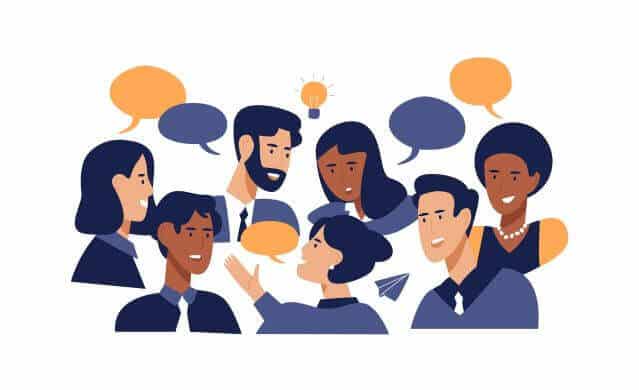How to Be a Good Listener and Enjoy Better Relationships
When people talk, listen completely. Most people never listen.
Ernest Hemingway
What does it mean to be a good listener?
We listen all the time to the sounds around us. In fact, it is physically impossible for us to shut it off.
Instead, what people mean when they say someone is a “good listener” is that the listener takes great effort in being purposefully and actively listening to what is being said.
Weger et al. (2014) defined active listening as having 3 components:
- Moderate to high nonverbal involvement of communication.
- Reflecting the speaker’s message through paraphrasing.
- Asking questions that encourages experience elaboration.
In this article, we will be exploring how to apply active listening to further improve our relationships.
Advantages of Active Listening
Active listening forms the foundation of a relationship between therapist and client. If used effectively, a mental health professional is able to communicate empathy and build trust with his or her clients.
This form of listening is what makes people feel safe, understood, and heard. It is what defines a “good listener”.
There are advantages to employing this communication tool.
For example, Reznik and colleagues (2012) found that during a couple’s arguments, active listening has a positive relationship with less health and stress symptoms. On the other hand, problem solving has a positive relationship with more health and stress symptoms.
In this study, the authors concluded that “… the key to resolving a disagreement is not to find a solution to the actual problem but instead to actively listen and acknowledge each other’s point of view in a constructive manner “.
Not only is being a good listener important in romantic relationships, but it is very helpful in work relationships too.
A study by Mineyama and colleagues (2007) found that employees who report to supervisors who score higher in effective listening show better stress reactions, more workplace support, and higher control over their jobs.
It seems that the adage of employees leaving their bad bosses instead of the job has some truth to it.
How to Be a Good Listener
A big part of what makes a good listener is the ability to paraphrase. Paraphrasing means “formulating someone else’s idea in your own words”.
Oftentimes, halfway through listening, a listener is already thinking of what to say next, an opinion to give, or a question to ask. This will not demonstrate good listening skills.
To actively listen, a person first has to listen, understand what is being said, and to seek clarification with the speaker if what is understood is accurate. This is done through paraphrasing.
Questions or opinions can come later.
Some examples:
Example 1
Speaker: “I am so overwhelmed with what is happening at work. There’s just so much to do, and I don’t know where to begin!”
Paraphrase: “Work is too much to bear at the moment, there’s too many tasks”.
Example 2
Speaker: “I dislike it when others aren’t paying attention to what I have to say. It just shows they are not listening”
Paraphrase: “It is important that a listener pays attention when you are speaking”.
Example 3
Speaker: “Reading this article has got me thinking of how to communicate more effectively. I wish I knew this sooner!”
Paraphrase: “You’re excited because this article shed light on effective communication”
On a side note, other than paraphrasing, it is important to show non-verbal interest in what the speaker has to say. This involves having eye contact, paying attention to the speaker, and genuinely being interested to what is being said.
While this may seem simple, but what counts is the intention and the heart in wanting to listen. This is something that isn’t able to be taught: you have to really care about what is being said by the speaker for this to work!
Conclusion
Just like any skill, paraphrasing instead of churning out our usual repertoire of responses in conversations can be challenging to develop. But, with more time and practice, you too can be an excellent listener.
Want to enjoy better relationships at home and at work? Start working on your active listening skills today!
